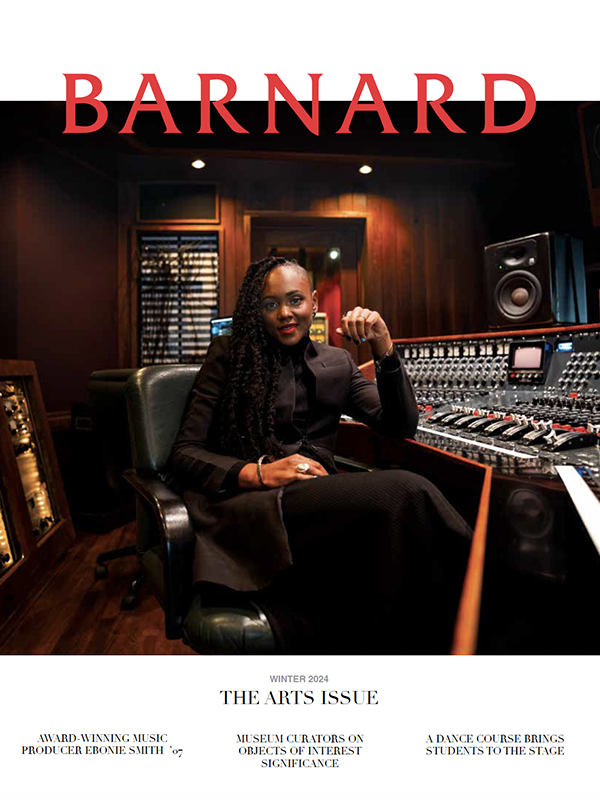When I graduated in 1971, like many of my classmates, I envisioned having a career and, someday, a family. But as well as I remember, nobody back then expected to need a skill set to care for aging parents, grown children, and maybe grandchildren. The term “sandwich generation” didn’t emerge for ten years.
Having lived in the 616 dorm, where each suite had a kitchen, I began to cook, inspired by my mom, a dietician. But I considered myself more adventuresome than she and remember preparing my first gourmet meal there for my then-boyfriend: shish kebabs with colorful vegetables laced on skewers and ambrosia for dessert, since coconut was considered an aphrodisiac back then.
Those budding cooking skills came in handy when raising children, after my divorce, and most recently, for my mom. After she hit ninety-five three years ago and found it harder to shop and prepare, my role shifted from cookie-brownie-rugelach maker—once her proud domain—to weekly deliverer of home-cooked meals and food supplies.
I soon began to wonder if I had bitten off too much, even with my gung-ho Barnard determination. Challenges arose. Her appetite waned. She became lactose intolerant. I read labels and switched to the growing array of products that wouldn’t cause digestive issues. I wanted her still to enjoy her favorite—ice cream. “I dreamt last night about Schrafft’s sodas,” she told me. I wondered if this was a dream or plea. I purchased lactose-free choices, made from coconut, soy, and almond milk, as well as lactose-free milk and cheeses for other favorites: macaroni and cheese and quiche.
Several friends noticed when they dined with us that I seemed a callous member of the food police as I said “no” and “you can’t have that” when dairy-filled foods were available, including mashed potatoes at a local bistro. “What difference does it make what she eats at this age?” they would ask when she was out of earshot. I grew defensive since I knew butter and cream could cause violent stomachaches.
When my patience with such questions wore thin, I replied bluntly, “The next time she gets sick, maybe you’ll come and clean up?” Most understood. I switched to blander foods—even buying colorful Jell-Os to add excitement and added cut-up fruit to make it seem more special.
The lack of a filter, which sometimes comes with aging, reared its head. I became the one who needed a tougher stomach to withstand criticisms. “You should get your money back for that pecan roll. It was stale,” she told me. I had carefully selected it from the case at a favorite bakery. I explained sweetly that I had no evidence since she had consumed it. She asked me to stop making macaroni and cheese.
I asked sheepishly if she still liked my quiche with seasonal vegetables, meat loaf that I lovingly shaped into a perfect architectural mound, and homemade soups that I packaged in small containers, easy to heat. “Yes,” she replied. I felt heartened that not all my culinary talents were scorned.
When I prepared dinner and stayed overnight, she seemed delighted. “That was a lovely meal; thank you,” she always told me the next day. Momentarily, we were back to the old days.
Yet, I found it harder to maintain the pace of cooking and delivering meals by the time I hit sixty-nine. My closest circle suggested I switch to one of the many food services that cater to every dietary need. I considered that but knew, deep down, that the role of chef I assumed out of necessity had begun to feed my need to care for my mother. I was helping her still enjoy home-cooked meals as she participated in fewer activities. Food had become the nourishment we both needed to share our love. •
Barbara Ballinger ’71, a writer, is co-author with Margaret Crane, of Suddenly Single after 50 (Rowman & Littlefield).
